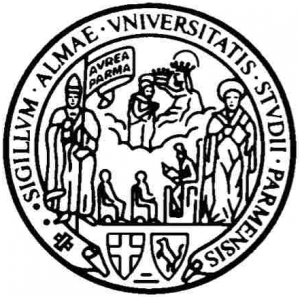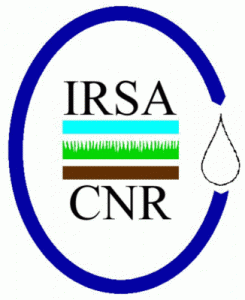Department of Earth and Environmental Sciences of the University of Pavia (EES-UNIPV, leading organization)
 Created in 2011 by merging the Earth Sciences Dept. and the Dept. of Ecology of the Territory, The EES-UNIPV has a long lasting tradition in hydrogeological, hydrochemical and isotopic studies mostly focused on groundwater from the Lombardy region. The EES-UNIPV comprises 27 academics, 26 researchers, 34 technical/administrative staff and about 65 doctoral and research fellows. The EES-UNIPV has field instruments for the analysis of hydrochemical parameters (pH, Eh, temperature, conductivity, alkalinity, nitrate and ammonia content) and for flow measurements (current meters). Numerous laboratories such as a fully equipped hydrochemical laboratory for the analysis of water samples (by titration, spectrophotometer and ion chromatography), a mineralogical/geochemical laboratory for the analysis of solid samples (XRPD, ICP-AES, TXRF), a geotechnical laboratory for the characterization of soils (grain size, clay content) and a GIS /remote sensing laboratory (stereoscopic viewers, ARCMAP and open source GIS software, satellite image and data treatment software) are available with dedicated technical staff. The EES-UNIPV hosts the CNR-IGG section, with an established collaboration agreement with the ISO4 isotopic laboratory (stable isotopes of the water molecule, of C containing compounds and of dissolved nitrogen forms).
Created in 2011 by merging the Earth Sciences Dept. and the Dept. of Ecology of the Territory, The EES-UNIPV has a long lasting tradition in hydrogeological, hydrochemical and isotopic studies mostly focused on groundwater from the Lombardy region. The EES-UNIPV comprises 27 academics, 26 researchers, 34 technical/administrative staff and about 65 doctoral and research fellows. The EES-UNIPV has field instruments for the analysis of hydrochemical parameters (pH, Eh, temperature, conductivity, alkalinity, nitrate and ammonia content) and for flow measurements (current meters). Numerous laboratories such as a fully equipped hydrochemical laboratory for the analysis of water samples (by titration, spectrophotometer and ion chromatography), a mineralogical/geochemical laboratory for the analysis of solid samples (XRPD, ICP-AES, TXRF), a geotechnical laboratory for the characterization of soils (grain size, clay content) and a GIS /remote sensing laboratory (stereoscopic viewers, ARCMAP and open source GIS software, satellite image and data treatment software) are available with dedicated technical staff. The EES-UNIPV hosts the CNR-IGG section, with an established collaboration agreement with the ISO4 isotopic laboratory (stable isotopes of the water molecule, of C containing compounds and of dissolved nitrogen forms).
Department of Chemistry, Life Sciences and Environmental Sustainability, Parma University, LS-UNIPR, Partner 1)
 The department has an old and excellent tradition in the study of aquatic ecosystem functioning and associated services. The LS-UNIPR comprises 29 academics, 23 researchers, 41 technical staff and about 40 doctoral and research fellows. The LS-UNIPR holds all the capabilities needed to support the research team in field sampling activities, in laboratory analysis and in data research and elaboration. Sampling and field instruments are available, such as Ruttner bottles, multiparameter probes, samplers for sediment cores, incubation systems for water, sediments and primary producers. LS-UNIPR chemical and biological laboratories are fully equipped for the analysis of soils, sediments and hydrochemical parameters with stoves, mittens, technical and analytical scales, autoclave, two dual-beam spectrophotometers, an atomic absorption spectrometer, two gas chromatographs for CH4 (FID detector) and for N2O (ECD detector) measurements, and an automatic microtitrator. The LS-UNIPR has also established a permanent cooperation with the Department of Chemistry of the University of Parma for the analysis of micro-pollutants and with the Department of Life Sciences and Biotechnology of the University of Ferrara. The latter allows to access a Membrane Inlet Mass Spectrometer (MIMS) for the analysis of dissolved gases (CH4, O2 and N2/Ar ratios).
The department has an old and excellent tradition in the study of aquatic ecosystem functioning and associated services. The LS-UNIPR comprises 29 academics, 23 researchers, 41 technical staff and about 40 doctoral and research fellows. The LS-UNIPR holds all the capabilities needed to support the research team in field sampling activities, in laboratory analysis and in data research and elaboration. Sampling and field instruments are available, such as Ruttner bottles, multiparameter probes, samplers for sediment cores, incubation systems for water, sediments and primary producers. LS-UNIPR chemical and biological laboratories are fully equipped for the analysis of soils, sediments and hydrochemical parameters with stoves, mittens, technical and analytical scales, autoclave, two dual-beam spectrophotometers, an atomic absorption spectrometer, two gas chromatographs for CH4 (FID detector) and for N2O (ECD detector) measurements, and an automatic microtitrator. The LS-UNIPR has also established a permanent cooperation with the Department of Chemistry of the University of Parma for the analysis of micro-pollutants and with the Department of Life Sciences and Biotechnology of the University of Ferrara. The latter allows to access a Membrane Inlet Mass Spectrometer (MIMS) for the analysis of dissolved gases (CH4, O2 and N2/Ar ratios).
The Water Research Institute (CNR-IRSA, Partner 2)
 CNR-IRSA is an institute of the Italian National Research Council (CNR), operating by a multidisciplinary approach on strategic national and international problems, whose solution requires a critical mass of experts. CNR-IRSA conducts research on the main aspects concerning water (quality, management, treatment) and acts as consultant for Italian Ministries and EU Commission, by active participation in CIS-WFD (Common Implementation Strategies – Directive 2000/60/EC) expert groups. CNR-IRSA has more than 60 permanent research staff, working in three sections located in Italy: Monterotondo (Rome), the headquarter, Bari (BA) and Brugherio (MB). Available equipment includes GC- MS tandem MS and LC tandem MS coupled with an on-line extraction/purification system for water and solid samples, laboratories for i) hydro-chemical analysis (equipped with spectrophotometers, ionic chromatographs, gas chromatographs), ii) benthic invertebrate evaluation and ecological status assessment, iii) ecotoxicological tests as well as facilities for in situ studies.
CNR-IRSA is an institute of the Italian National Research Council (CNR), operating by a multidisciplinary approach on strategic national and international problems, whose solution requires a critical mass of experts. CNR-IRSA conducts research on the main aspects concerning water (quality, management, treatment) and acts as consultant for Italian Ministries and EU Commission, by active participation in CIS-WFD (Common Implementation Strategies – Directive 2000/60/EC) expert groups. CNR-IRSA has more than 60 permanent research staff, working in three sections located in Italy: Monterotondo (Rome), the headquarter, Bari (BA) and Brugherio (MB). Available equipment includes GC- MS tandem MS and LC tandem MS coupled with an on-line extraction/purification system for water and solid samples, laboratories for i) hydro-chemical analysis (equipped with spectrophotometers, ionic chromatographs, gas chromatographs), ii) benthic invertebrate evaluation and ecological status assessment, iii) ecotoxicological tests as well as facilities for in situ studies.
